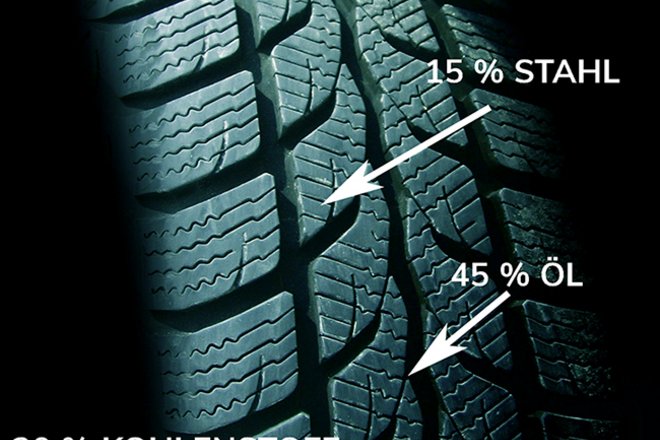
When circular economy is mentioned, tires are not necessarily among the first materials that come to the consumer's mind. However, about 3.4 million tons of so-called “end-of-life tires” (ELTs) are being collected every year just in the EU (Source: ETRMA data for 2017, WBCSD Tire Industry Project 2019). Producing these tires consumes a lot of natural resources and generates a significant amount of CO2 during the manufacturing process.
With about 73% share of the demand of carbon black, the EU tire industry is the largest consumer of the approximate 1.8 million tons of virgin carbon black consumed in the EU (Source: Notch Consulting, 2020 pre-COVID projection). Each ton of carbon black requires 1.5 – 2.0 tons of oil during production and releases about 2.5 – 3 tons of CO2.

The use of recovered Carbon Black instead of virgin carbon Black reduces the carbon footprint by almost 80% and most of the large tire manufacturers strive to use a significant amount of rCB in the near future. Continental has an objective to increase the use of recycled materials from 4% to 10% by 2025.
End-of-life tires represent an energy-rich material and are increasingly coming into focus as a resource for oil, gas, steel and, above all, recovered Carbon Black. Unlike in the past, the tire pyrolysis industry is increasingly relying on rCB as a rubber filler and pigment because it can significantly increase the value contribution of a modern pyrolysis plant.
Recovered carbon black is a composite material of varying composition, depending on the tire feedstocks and the process conditions used. It needs to be ground after leaving the pyrolysis reactor because its particle size distribution of the pyrolysis product is very wide, between microns and centimeters. Not milled raw recovered Carbon Black is therefore of low value, whereas refined recovered Carbon Black has a twentyfold value. In numerous tests with differing qualities of rCB feedstock, the impact classifying mill (ICX) system by NEUMAN & ESSER Process Technology has shown superior grinding and classifying performances, perfectly coping with the changing process conditions.

NEUMAN & ESSER with its patented ICX milling system design has already displayed its capabilities in this growing industry. The unique ICX performance allows to further increase the value of the rCB by providing desired finenesses of d97=6-20 µm at high throughputs in a very energy efficient way. The NEUMAN & ESSER ICX system thus providing a real alternative to energy and maintenance intensive jet mill grinding and classifying processes.